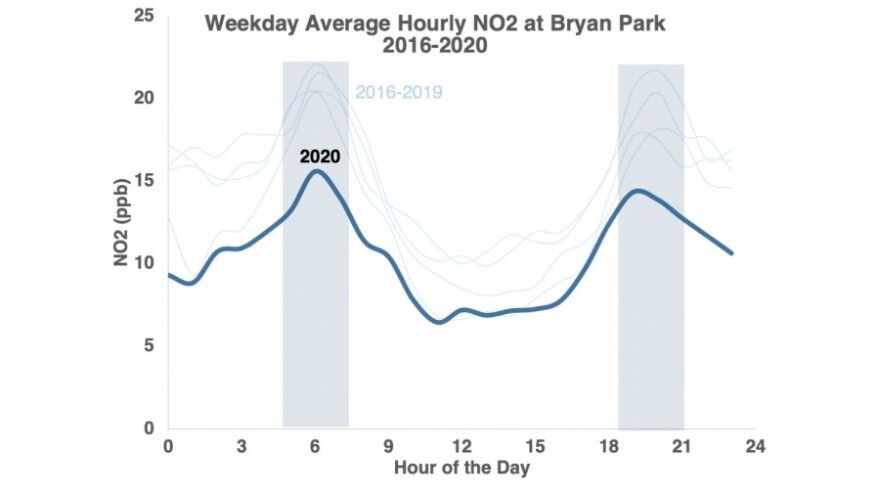*VPM intern Alan Rodriguez Espinoza reported this story.
Improvements in air quality near the Richmond interstate suggest that social distancing restrictions are inadvertently benefiting the environment.
Nitrogen levels in the air near Richmond highways typically drop by 25 percent as the weather changes from March to April. This year it was a drop of 35 percent, according to the Virginia Department of Environmental Quality.

“People staying at home and teleworking has a positive effect on air quality,” said VDEQ meteorologist Dan Salkovitz. “And it's no surprise, because there's less traffic.”
According to the Virginia Department of Transportation, car traffic in Richmond has seen a decrease of at least 45 percent. The burning of fuel for transportation is the main source of nitrogen dioxide emissions.
“I should say we've had generally very low levels of nitrogen dioxide across the state for a long time,” Salkovitz added. “So it's not like it went from bad to good. It's just that it went from good to better.”
Recent satellite data from NASA shows similar reductions in air pollution throughout various cities in the Northeast of the country. Greg Garman, director for the Virginia Commonwealth University Rice Rivers Center, says these changes are probably temporary.
“But I think it's really helpful to look at how in just six weeks, two months, of driving less and flying less, air quality responded,” Garman said.
He also mentioned that a slowdown in commercial fishing, manufacturing and other economic activity due to social distancing restrictions could bring about similar side effects to the Chesapeake Bay and Virginia’s rivers.
“Some of these fisheries and some of these fish stocks that have been fished really hard and maybe are on the edge of sustainability, this might give a little bit of a temporary reprieve and maybe allow some of those stocks to recover a little bit,” Garman said.
While these changes are short-term, Garman says he hopes they will inform research and policymaking for years to follow.


